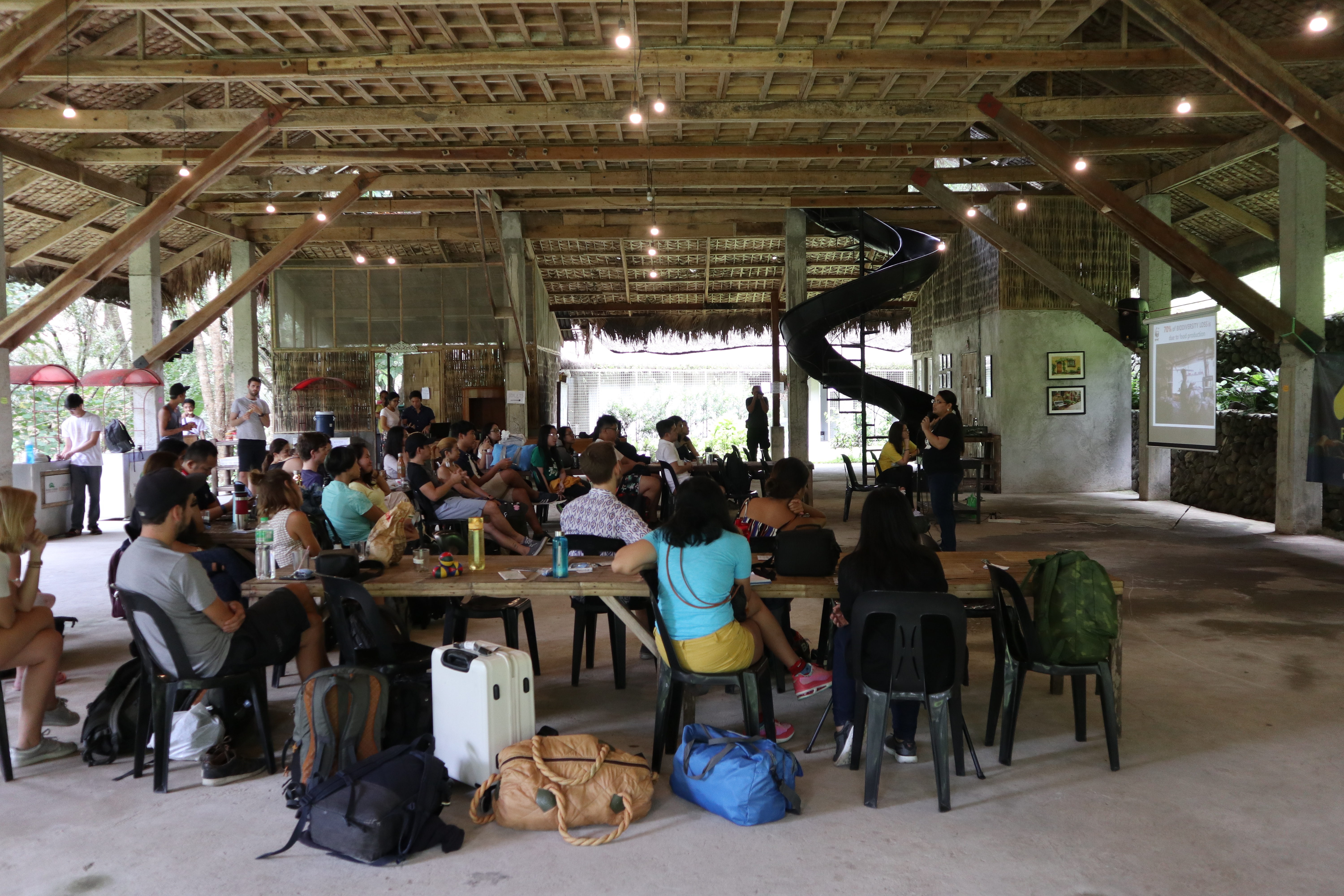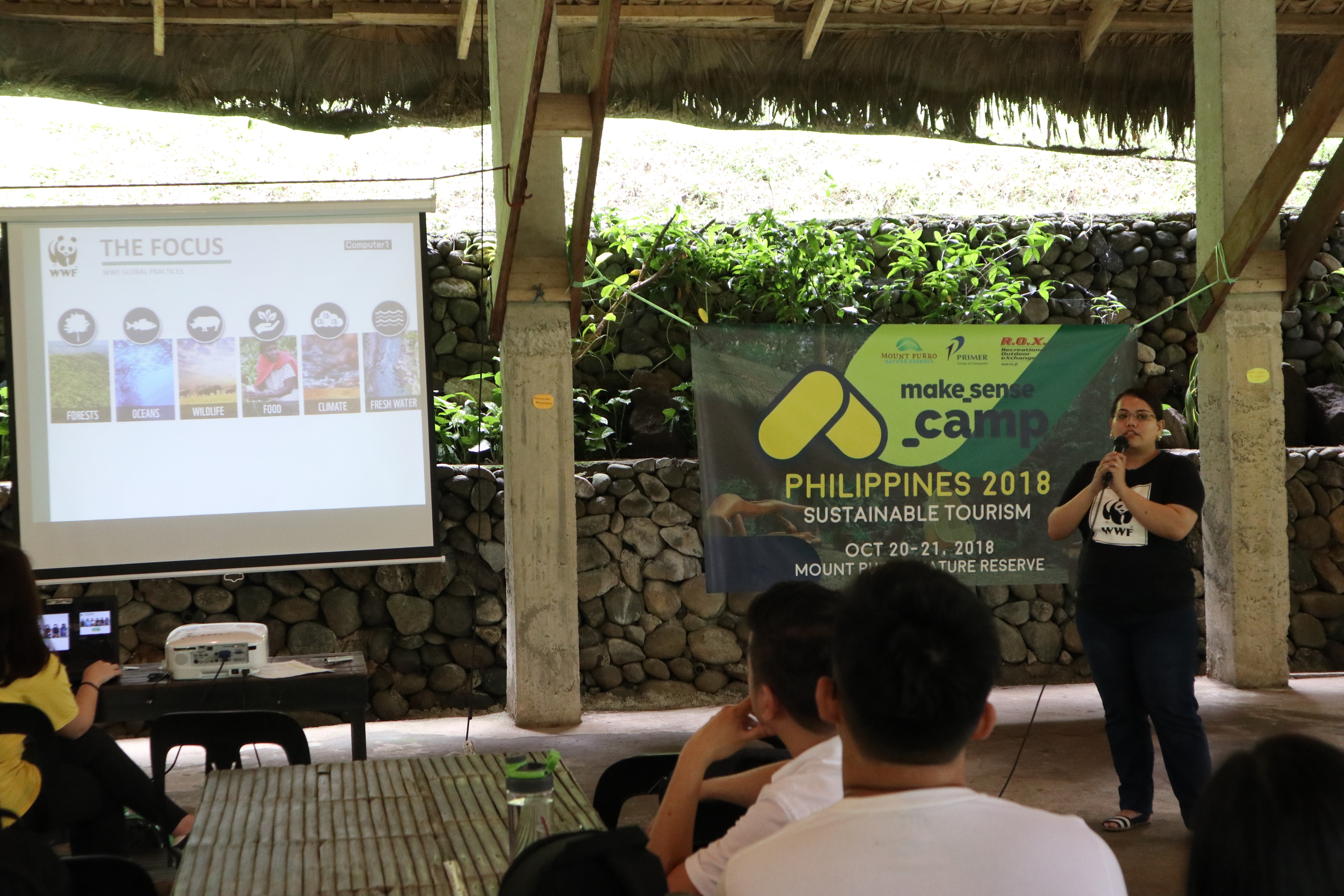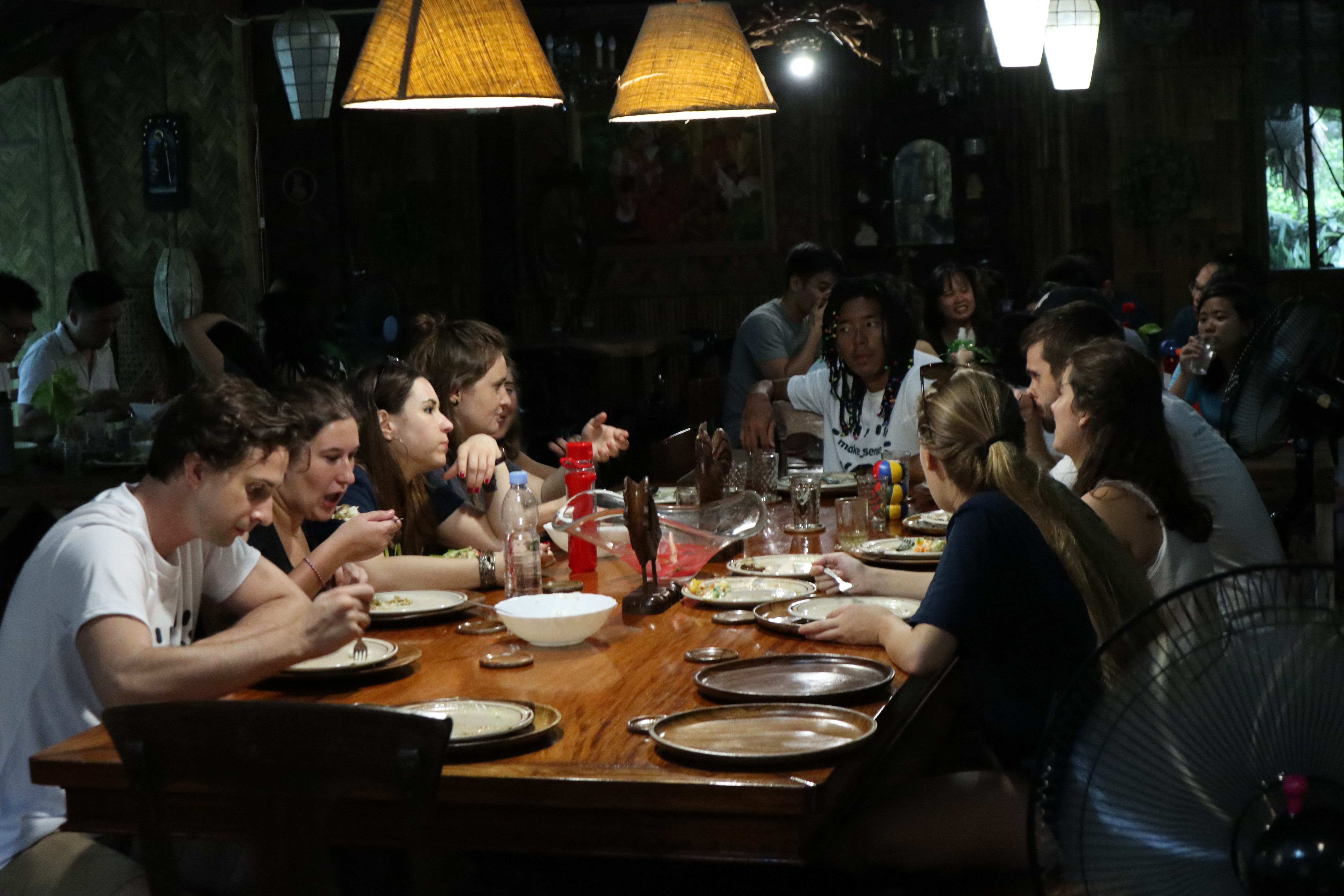The Sustainable Diner at SenseCamp Philippines 2018 in Mount Purro Nature Reserve, Antipolo City
October 2018

Participants of SenseCamp Philippines 2018 all set for the two-day camp.
Photo © Gabriel Villalon / WWF-Philippines
Last October 20 and 21, SenseCamp Philippines: Sustainable Tourism was held at Mount Purro Nature Reserve, Antipolo City. SenseCamp is a community-based event where participants are encouraged to discover and exchange new ideas, actionable insights, success stories, and points for improvement. SenseCamp was launched in Berlin in 2012 and has since been adapted to different parts the world.
SenseCamp 2018 intended to foster a sense of what sustainable tourism is among participants so that when they travel, they do not only enjoy the wonders of nature but also capably protect and respect the environment and its finite bounty. It was also meant to highlight the initiatives of government agencies and non-government organizations in the subject area. It comprised pertinent panel discussions, workshops, advocacy and awareness building activities, and even a trek around the Mount Purro ecotourism site.
SenseCamp is a brainchild of MakeSense, an international non-profit organization that forges collaborative movement among highly motivated individuals and organizations as well as forward-thinking entrepreneurs in response to pressing social and environmental issues. It is present in more than 150 cities around the world and has mobilized thousands of global citizens. It has been in the country for four years now and is operating in Metro Manila, Cebu, Iloilo, Baguio, Lipa, and Cavite.

Melody Melo-Rijk, project manager of The Sustainable Diner Project, shares the different practices of WWF and how all of these contribute to the promotion of sustainable tourism.
Photo © Gabriel Villalon / WWF-Philippines
Melody Melo-Rijk, WWF-Philippines’ Project Manager for Sustainable Consumption and Production, introduced The Sustainable Diner project to the campers. She related that it is the project’s main objective to assist the food service industry, particularly in three major tourist destinations in the country, towards the path of sustainability. She also cited that the work entails raising awareness, deepening appreciation, building capacities, and enhancing or creating policies, among others.
In line with the camp’s theme, Ms. Melo-Rijk explained that food is a major function of tourism. “We travel not only to enjoy the sights, but also the food that different destinations offer,” she said. For one to consider himself/herself a responsible traveler, he/she must also be a sustainable diner, she stressed. Now that food production accounts for 70% of the biodiversity loss and that consumers in the local food scene largely consist of tourists and travelers, Melo-Rijk implored the campers to advocate for sustainable tourism in their own capacities. She encouraged them to stay informed and challenged them to embody sustainability wherever they set foot.

SenseCampers from different age groups and racial backgrounds enjoying their hearty lunch.
Photo © Gabriel Villalon / WWF-Philippines
In keeping with the camp’s theme of sustainability, the campers were served mostly plant-based meals. More so, a challenge was posted to the campers so that they become more aware of the food waste that they are producing. They were challenged not to fill a single trash bin until the end of the activity.
The profiles of the campers reflect honest-to-goodness diversity—a clear proof that advocacy can really bring people together no matter their differences. As we always say at WWF, together possible!
The Sustainable Diner project, under WWF-Philippines’ Sustainable Consumption and Production, is part of the International Climate Initiative (IKI). The Federal Ministry for the Environment, Nature Conservation, and Nuclear Safety (BMU) supports this initiative on the basis of a decision adopted by the German Bundestag.
